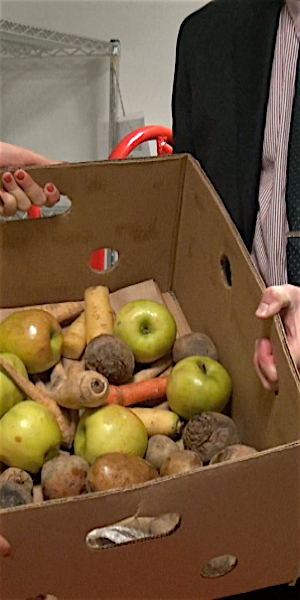We can help you take the next step!
Maine has established a commission to study wasted food, and there are many opportunities in the state to jumpstart the wasted food marketplace. Exeter Agri-Energy accepts material for de-packaging and processing through its anaerobic digester; CET helps source feedstock for this facility. CET is excited to help Maine stakeholders move forward on wasted food reduction and diversion. Contact CET today at 888-813-8552 or email wastedfood@cetonline.org for assistance.
Helpful Maine Wasted Food Resources
- Resources for food recovery in Maine
- The University of Maine’s Senator George J. Mitchell Center for Sustainability Solutions provides a range of resources on composting, donating surplus food, reducing food waste, and gleaning programs.
- Guide to Recovering and Composting Organics in Maine (2016)
- The Maine Department of Environmental Protection provides information, resources, and guidance on composting in Maine.
- Composting Facilities in Maine
- The Maine Department of Environmental Protection (MaineDEP) has application forms and annual reports on composting facilities.
- Food waste recycling pilot program
- A program by the non-profit organization ecomaine to build wasted food recycling capacity in southern Maine.
- Food Date Labeling Act
- U.S. Senator Richard Blumenthal (D-CT) and Congresswoman Chellie Pingree (D-ME) introduced this act, which supports standardizing food date labeling to reduce confusion and simplify regulatory compliance.
Maine Legal/Regulatory Requirements
-
Every state has specific state-level legal and regulatory requirements regarding food waste and food donation. ReFED, a national food waste prevention nonprofit, created a searchable database of state-by-state food waste policies and regulations, in collaboration with the Harvard Food Law and Policy Clinic. View the Maine food waste policy page for specific, up-to-date information about Maine’s food waste laws.
- The Emerson Act
- The Federal Emerson Act (Public Law 104-210) protects donors from liability when donating to nonprofit organizations and protects donors from civil and criminal liability should the product, donated in good faith, later cause harm to the needy recipient.
- Helpful fact sheets on food donation laws from Harvard Food Law and Policy Clinic
Toolbox
For more information regarding food waste estimates, source separation guidance, and how to start a food donation program, open CET’s Toolbox.
TAKE THE NEXT STEP, CONTACT US!
Contact CET to learn more about food recovery and waste diversion opportunities for your business, institution, customers, or association members:
